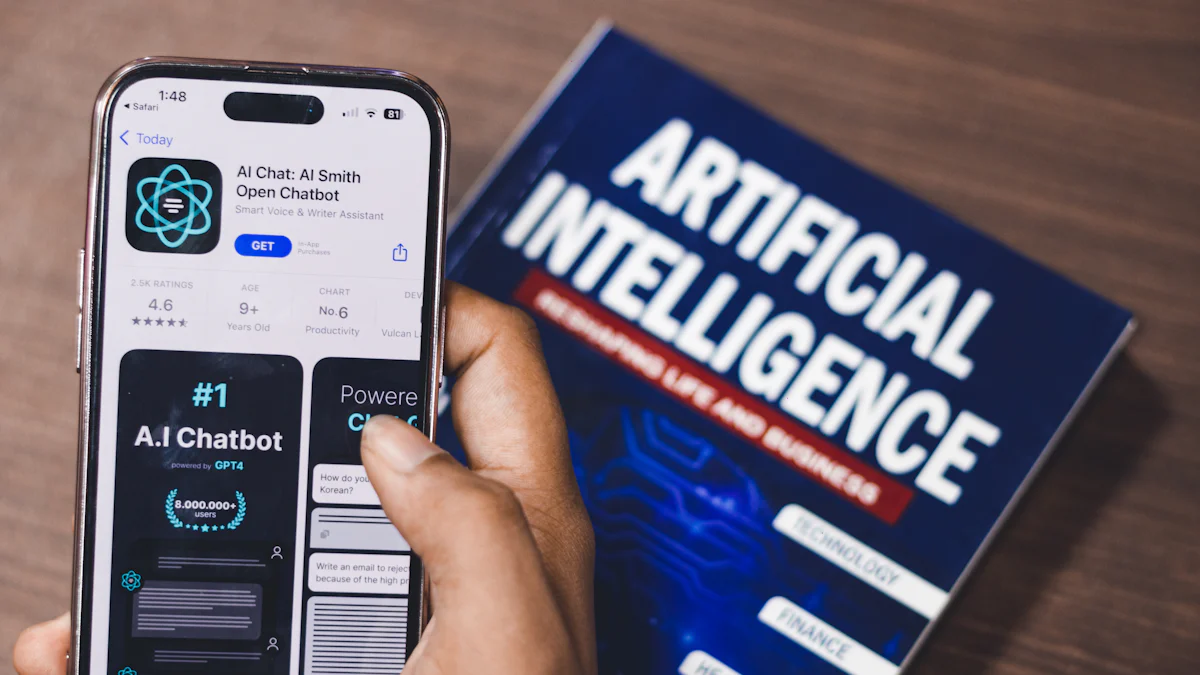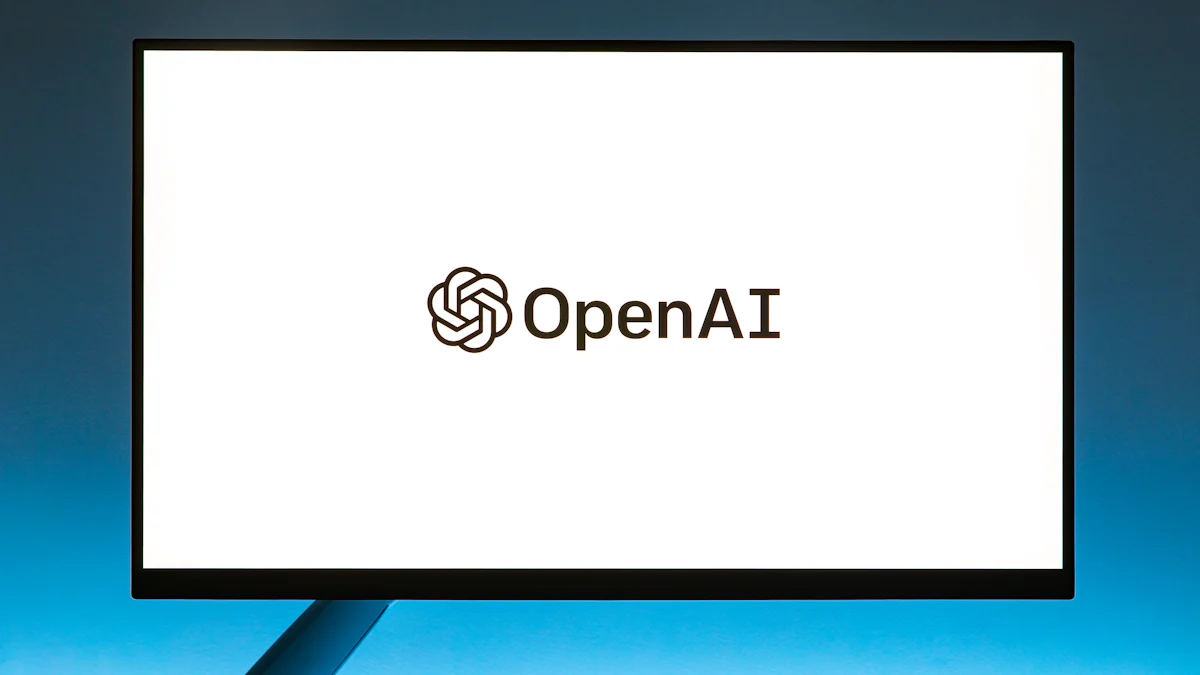Lifecycle Marketing Revolution: Harnessing the Potential of AI Chatbots

In the realm of modern marketing, the concept of lifecycle marketing stands as a pivotal strategy. With businesses investing trillions annually in customer queries, the integration of aibot chat has emerged as a game-changer. These advanced bots not only streamline operations but also enhance customer engagement significantly. From reducing query handling by 30% to accelerating sales completion by 10%, their impact is undeniable. As we delve deeper, we will explore how Custom ChatGPT and NewOaks AI revolutionize customer interactions and drive conversions at every stage.
The Role of AI Chatbots in Lifecycle Marketing

In the realm of lifecycle marketing, AI chatbots play a pivotal role in enhancing customer engagement and improving marketing strategies. These advanced bots are not just automated responders; they are intelligent tools that can transform how businesses interact with their customers.
Enhancing Customer Engagement
Personalized Interactions
AI chatbots excel at providing personalized interactions with customers. By analyzing data and understanding customer preferences, these bots can tailor responses to individual needs. For instance, when a customer inquires about a product, the chatbot can recommend similar items based on their browsing history or purchase behavior. This level of personalization creates a more engaging and satisfying experience for the customer.
Real-time Support
One of the key benefits of AI chatbots is their ability to provide real-time support to customers. Whether it's answering frequently asked questions or resolving issues promptly, these bots ensure that customers receive immediate assistance. By offering 24/7 support, businesses can enhance customer satisfaction and build trust with their audience.
Improving Marketing Strategies
Data-driven Insights
AI-powered chatbots are invaluable for gathering data-driven insights that can inform marketing strategies. By analyzing user interactions and collecting feedback, businesses can gain valuable information about customer preferences and behaviors. This data allows companies to optimize their marketing campaigns, personalize messaging, and target specific audience segments effectively.
Automation Benefits
Automation is a cornerstone of modern marketing strategy, and AI chatbots offer significant automation benefits. From automating lead generation processes to scheduling follow-ups with prospects, these bots streamline marketing operations and free up valuable time for marketers. By automating repetitive tasks, businesses can focus on strategic initiatives that drive growth and revenue.
Stages of Lifecycle Marketing
Reach
At the initial stage of the lifecycle, businesses aim to reach a broad audience and generate awareness about their products or services. AI chatbots can assist in this stage by engaging visitors on the website, providing relevant information, and capturing leads through interactive conversations.
Acquisition
Once potential customers have been identified, businesses focus on acquiring them as paying customers. Chatbots can facilitate the acquisition process by guiding users through the sales funnel, addressing objections, and offering incentives to make a purchase. By leveraging chatbots at this stage, businesses can increase conversion rates and drive revenue growth.
Conversion
The conversion stage is where prospects transition into paying customers. AI chatbots play a crucial role in converting leads into sales by providing personalized recommendations, assisting with product selection, and addressing any concerns or hesitations that may arise during the purchasing process.
Retention
After acquiring customers, businesses must focus on retaining them for long-term loyalty. Chatbots can help improve customer retention by providing ongoing support, sending personalized recommendations based on past purchases, and soliciting feedback to enhance the overall customer experience.
Loyalty
Building brand loyalty is essential for sustainable business growth. AI-powered chatbots can strengthen brand loyalty by engaging customers in meaningful conversations, rewarding loyal patrons with exclusive offers or discounts, and creating personalized experiences that resonate with their interests.
ChatBot Development Life Cycle
In the realm of AI chatbots, the ChatBot Development Life Cycle is a critical process that ensures the successful implementation and functionality of these intelligent tools. From initial planning to final deployment, each stage plays a vital role in creating a seamless and engaging user experience.
Planning and Strategy
Identifying Objectives
When embarking on the development of an AI chatbot, it is essential to first identify objectives clearly. These objectives serve as guiding principles that dictate the bot's purpose and functionality. By defining specific goals such as improving customer service efficiency or increasing lead generation, businesses can tailor their chatbot development process to meet these objectives effectively.
Defining Target Audience
Another crucial aspect of the planning and strategy phase is defining the target audience for the AI chatbot. Understanding who will be interacting with the bot allows developers to design conversations and features that resonate with users. By segmenting audiences based on demographics, preferences, or behaviors, businesses can create personalized experiences that drive engagement and satisfaction.
Design and Development
Conversational Flow
The design and development phase of an AI chatbot focuses on creating a seamless conversational flow that mimics natural human interactions. By mapping out dialogue paths and responses, developers can ensure that users have a smooth and intuitive experience when engaging with the bot. Incorporating branching logic based on user inputs enables the chatbot to provide relevant information and assistance at each step of the conversation.
Integration with Systems
Integrating an AI chatbot with existing systems is paramount to its success. Whether connecting to customer relationship management (CRM) software or e-commerce platforms, seamless integration with systems ensures data consistency and enhances operational efficiency. By enabling the chatbot to access relevant information in real-time, businesses can deliver accurate responses and personalized recommendations to users.
Testing and Deployment
User Testing
Prior to deployment, thorough user testing is essential to identify any potential issues or areas for improvement in the AI chatbot. Conducting usability tests with target audiences allows developers to gather feedback on usability, functionality, and overall user experience. By iterating based on user input, businesses can refine their chatbot to meet user expectations effectively.
Performance Monitoring
Once deployed, continuous performance monitoring is crucial to ensure that the AI chatbot operates optimally. Tracking key performance indicators (KPIs) such as response time, conversation completion rate, and user satisfaction provides insights into the bot's effectiveness. By analyzing performance metrics regularly, businesses can make data-driven decisions to enhance the chatbot's performance over time.
Customer Lifecycle Management

Gathering Customer Data
In the realm of customer lifecycle management, gathering data is a fundamental step that empowers businesses to understand their audience better and tailor their marketing strategies accordingly. Utilizing advanced analytics tools allows companies to delve deep into customer behaviors, preferences, and engagement patterns. By analyzing data points such as website interactions, purchase history, and feedback responses, businesses can create targeted campaigns that resonate with their audience.
Analytics Tools
Implementing robust analytics tools provides businesses with actionable insights to drive informed decision-making.
Tracking metrics like click-through rates, conversion rates, and customer lifetime value enables companies to measure the effectiveness of their marketing efforts.
Leveraging tools such as Google Analytics or Custom ChatGPT's analytics dashboard offers real-time visibility into campaign performance and customer interactions.
Feedback Mechanisms
Establishing effective feedback mechanisms is essential for collecting valuable insights from customers.
Encouraging feedback through surveys, reviews, or direct communication channels helps businesses gauge customer satisfaction levels.
Analyzing feedback data allows companies to identify areas for improvement, address customer concerns proactively, and enhance overall customer experience.
Implementing Lifecycle Marketing Campaigns
Implementing targeted lifecycle marketing campaigns is crucial for nurturing leads through the sales funnel and fostering long-term customer relationships. By leveraging channels like email and SMS marketing, businesses can engage with customers at different stages of the lifecycle effectively.
Email Marketing
Personalized email campaigns tailored to specific customer segments can drive engagement and conversions.
Crafting compelling subject lines, relevant content, and clear call-to-action buttons enhances email open rates and click-through rates.
Automated email sequences powered by AI chatbots enable businesses to deliver timely messages based on user behavior and preferences.
SMS Marketing
Utilizing SMS marketing as part of a multichannel strategy helps reach customers instantly on their mobile devices.
Sending personalized SMS notifications about promotions, product updates, or exclusive offers boosts customer engagement.
Integrating conversational AI capabilities into SMS marketing campaigns enables interactive communication that resonates with customers.
Measuring Success
Measuring the success of lifecycle marketing initiatives is essential for optimizing strategies and driving continuous improvement. By tracking key performance indicators (KPIs) and analyzing campaign performance metrics, businesses can evaluate the effectiveness of their efforts systematically.
Key Performance Indicators
Monitoring key performance indicators such as conversion rates, retention rates, and customer acquisition costs provides valuable insights into campaign performance.
Setting specific KPI targets aligned with business goals helps measure success accurately and identify areas for optimization.
Utilizing data visualization tools or dashboards simplifies KPI tracking and facilitates data-driven decision-making processes.
Continuous Improvement
Embracing a culture of continuous improvement enables businesses to adapt to changing market dynamics and evolving customer needs.
Conducting A/B testing experiments, gathering user feedback, and iterating on campaign strategies fosters innovation and growth.
Leveraging AI-powered analytics solutions for predictive modeling or trend analysis empowers businesses to stay ahead of the competition in today's dynamic marketplace.
Witness the transformative power of AI chatbots in revolutionizing lifecycle marketing. From personalized interactions to data-driven insights, these bots redefine customer engagement.
The future holds endless possibilities for AI chatbots, promising enhanced automation and deeper customer connections.
Embrace the evolution of marketing strategies by adopting AI chatbot solutions and stay ahead in the dynamic landscape of modern business.
See Also
Optimize Your Sales Pipeline Using AI Chatbots: A Comprehensive Tutorial
Boost Your Shopify Store with AI Chatbots for Instant Customer Assistance
The Impact of White Label Chatbots on Digital Marketing Firms
Personalize Your Shopify Chat Interaction with AI Chatbots
Harnessing Personalization: Unleashing GPT-3 Chatbots for Virtual Help

